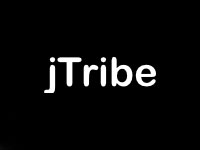App development firms get rich on big biz

Once upon a time, the only clients that had the foresight and flexibility to order a custom-crafted app were cash-strapped entrepreneurs. However, larger companies are coming aboard the touch express and, more importantly, they're willing to pay, said jTribe's Daniel Bradby.

The jTribe has spoken
(Credit: jTribe)
Based in Sydney and Melbourne, jTribe is one of the lucky few app developers in Australia currently surfing on a groundswell of popularity among the corporate sector. According to Daniel Bradby, one of the three jTribe directors, demand is high and supply is low.
Initially, jTribe's main clientele was from the start-up scene. However, in the last several months, this once niche service has been expanding to corporate clients.
"It has changed a bit. We've been in the mobile services game for a couple of years now and we've certainly seen a change in the last six to nine months where we acquired more serious clients," said Bradby.
These clients also understand that they need to pay for analysis, user experience and design.
"They know that it adds up and they know that they need to pay for professional services," said Bradby.
"Maybe 18 months ago we were mainly approached by entrepreneurs and they're quite cash-strapped," he said, adding that scarcity of skills and resources to cope with demand meant that the prices were too steep for lean start-ups.
"But in the last six months we've seen clients that are willing to pay, and are willing to pay what we expect to be paid as a professional services company."
One of these high-profile wins was the company's recent contract with Education Services Australia, a company formed by the Ministry of Education, to publish and organise curricula in app form. jTribe is also tasked with importing education and learning objects (initially developed in Flash) onto devices like the iPad.
Indeed, it may just be the rising popularity of consumer smartphones driving corporate interest, according to Bradby.
"I think it's the ubiquity of smartphones — it's not just for enterprise any more, it's moving to everyone," said Bradby.
While consumers may be driving up the use of apps, Bradby sees value in using apps as part of enterprise and government.
For Bradby, one of the success stories for the app development scene in general was the willingness of government to get involved in competitions and activities like "App My State".
Developers are invited to use government data, like the location of park benches around Sydney CBD, to create applications to win prizes. Bradby feels this is a great model to foster innovation.
"Instead of commissioning [apps], they open up their data and let developers access it and potentially commercialise it — I think that's a great model," said Bradby.
"I think their support of app development through the open data mechanisms is enough. I think as a small business I'd like to see them do more for small technology businesses and start-ups."
In Bradby's view, the government is quite "heavyweight" when it comes to commercialisation: it focuses on documentation and processes, while he would like to see more innovation support for small businesses.
"Start-ups operate with sweat equity, they start from an idea, someone writing code on a weekend," said Bradby. He believed that often small businesses caught up in day-to-day operating costs were unable to cough up the hundreds and thousands of dollars necessary to match government investment schemes.
Despite this, jTribe is going well and in the future will be looking at taking over your TV.
"We're keeping a close eye on TV," said Bradby, describing how people are often prone to checking content on their phones or iPads while watching television. He said that a service like Google TV was an example of how technology and TV could be fused together.
However, what Bradby is looking forward to the most in the future is the ubiquity of smartphones; especially those running on the Android platform which Bradby calls "compelling".
"You can get a prepaid smartphone now for less than $200 with full access to the app marketplace. It's incredible," said Bradby.